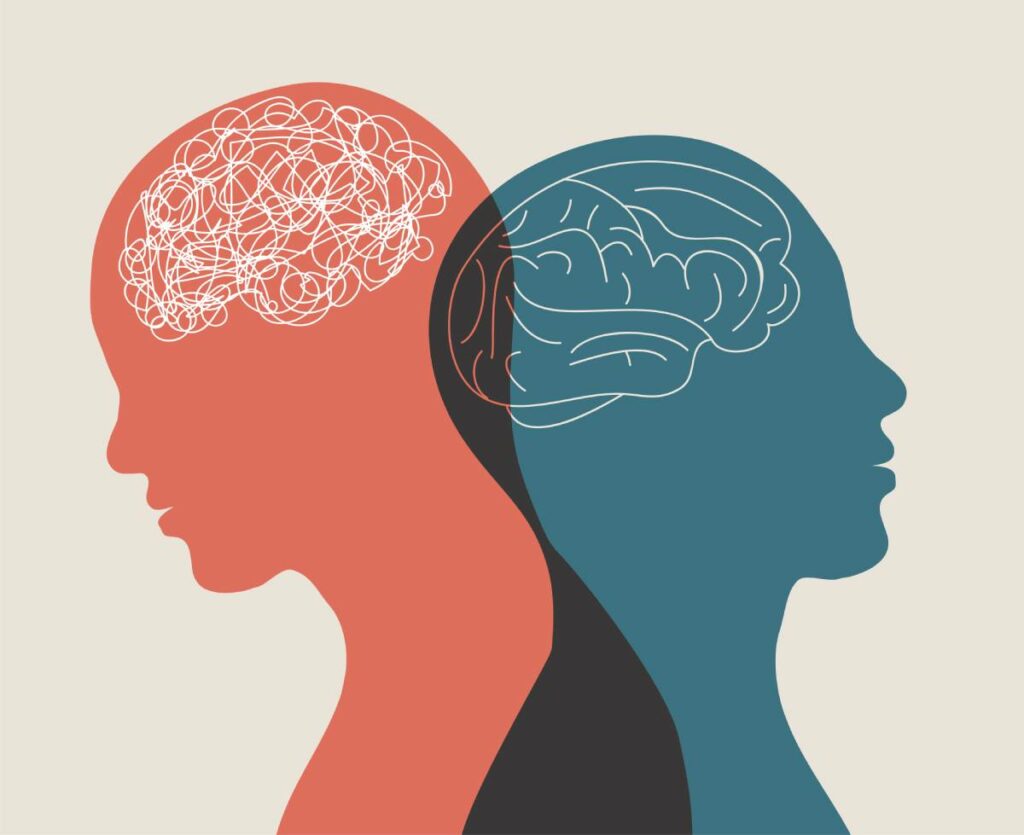It is no secret that our physical and mental health are closely linked. We often think of them as two distinct entities, but in reality, they can be considered more like two sides of the same coin, each affecting the other profoundly. When one side is neglected or not cared for properly, it can significantly impact the other. In this article we will take a closer look at how our physical and mental health is intertwined and what we can do to promote better well-being.

The Role of Exercise
Exercise plays a vital role in physical and mental health. On the physical side, regular exercise helps improve cardiovascular health, muscle strength, coordination, balance, and flexibility – all of which contribute to an overall sense of well-being. On the mental side, exercise has been proven to reduce stress levels, improve cognitive function, reduce symptoms of depression and anxiety disorders, increase self-esteem and confidence levels, and even help with sleep quality.
In addition to these effects on physical and mental health separately, research has also shown that exercise can help to improve both together! One study found that regular aerobic exercise improved both physical fitness levels and psychological functioning in participants with clinical depression over 12 weeks. This suggests that taking care of your body through regular exercise may be an effective way to improve your overall well-being.
The Role of Nutrition
Nutrition is another critical factor in maintaining good physical and mental health. Poor nutrition can lead to weight gain or loss and deficiencies in essential vitamins and minerals, leading to various health issues such as fatigue or flawed immune system functioning. On the mental side, inadequate nutrition has been linked with an increased risk for depression and cognitive decline over time due to vitamin deficiencies or imbalances in essential fatty acids such as Omega-3s or Omega-6s.
For this reason, it is vital to make sure you are getting enough essential vitamins and minerals from your diet by eating a variety of fruits, vegetables, lean proteins (such as fish), grains (such as quinoa), legumes (such as beans), nuts/seeds (such as almonds), etc. while avoiding processed foods high in sugar or saturated fats whenever possible.
The Role of Stress Management
Stress management is another crucial component in promoting overall physical and mental wellness. Stress has been shown to have adverse effects on both the body (increased risk for illnesses such as heart disease) and mind (increased risk for depression).
It is important to learn healthy stress management techniques such as meditation or yoga, which have been proven effective for reducing stress levels over time. Activities such as journaling or talking with friends/family about any worries or concerns can also help manage stress levels! Journaling is a beneficial tool for identifying stress triggers and developing a plan for managing them in the future.
How Can You Make Positive Changes?
It is clear that physical and mental health are interconnected, and taking proper care of both can help to promote better overall well-being. Here are a few tips for making positive changes in your life:
• Get regular exercise– even if it’s just a short walk every day, it can make all the difference for your physical and mental health. If you want something more intense, try HIIT or strength training!
• Eat a nutritious diet – ensure you get enough fruits, vegetables, lean proteins, and healthy fats in your diet.
• Practice stress management techniques – find activities or practices that help you to relax, such as yoga or meditation.
• Take time for yourself – spend quality time with friends/family or do activities you enjoy to help maintain a good balance. Some activities, such as reading or a hot bath, can also help reduce stress levels.
• Seek professional help – if you are struggling with any mental health issues, you must reach out and talk to a doctor or therapist for help.
By following these tips and making minor changes to your lifestyle, you can take care of your physical and mental health and be on your way to better overall well-being.
Final Thoughts on the Relationship Between Your Physical and Mental Health
Our physical and mental health are deeply interconnected – what affects one will inevitably affect the other too! For this reason, we must take care of both by engaging in regular exercise routines; eating nutritious meals; practicing healthy stress management techniques; getting enough rest; spending time outdoors; connecting with family/friends; etc., so that we can remain healthy both physically & mentally! Taking care of ourselves should always be our top priority – if we don’t take care of ourselves first, how can we expect anyone else to? So remember – take some time each day just for you! Your body & mind will thank you later.




